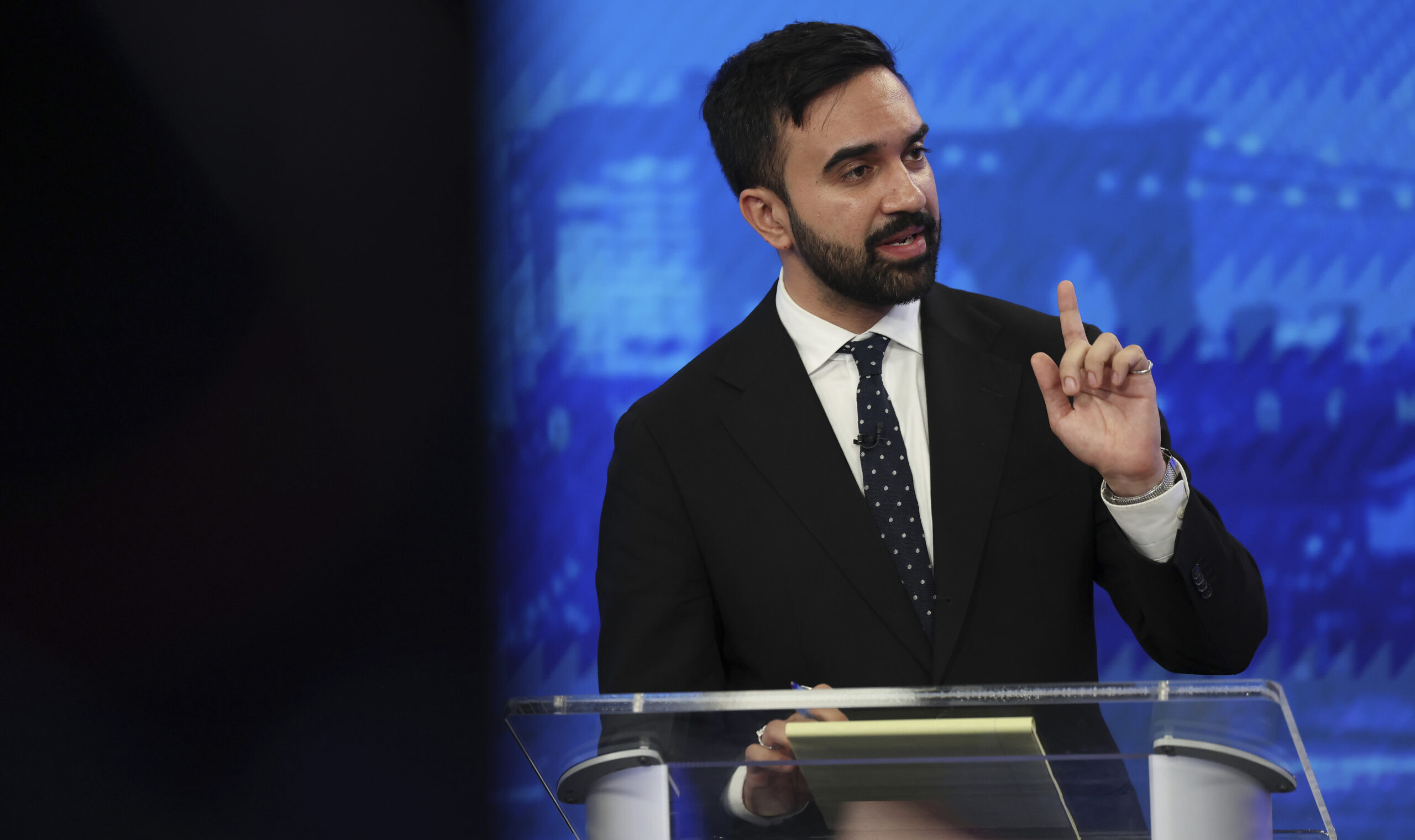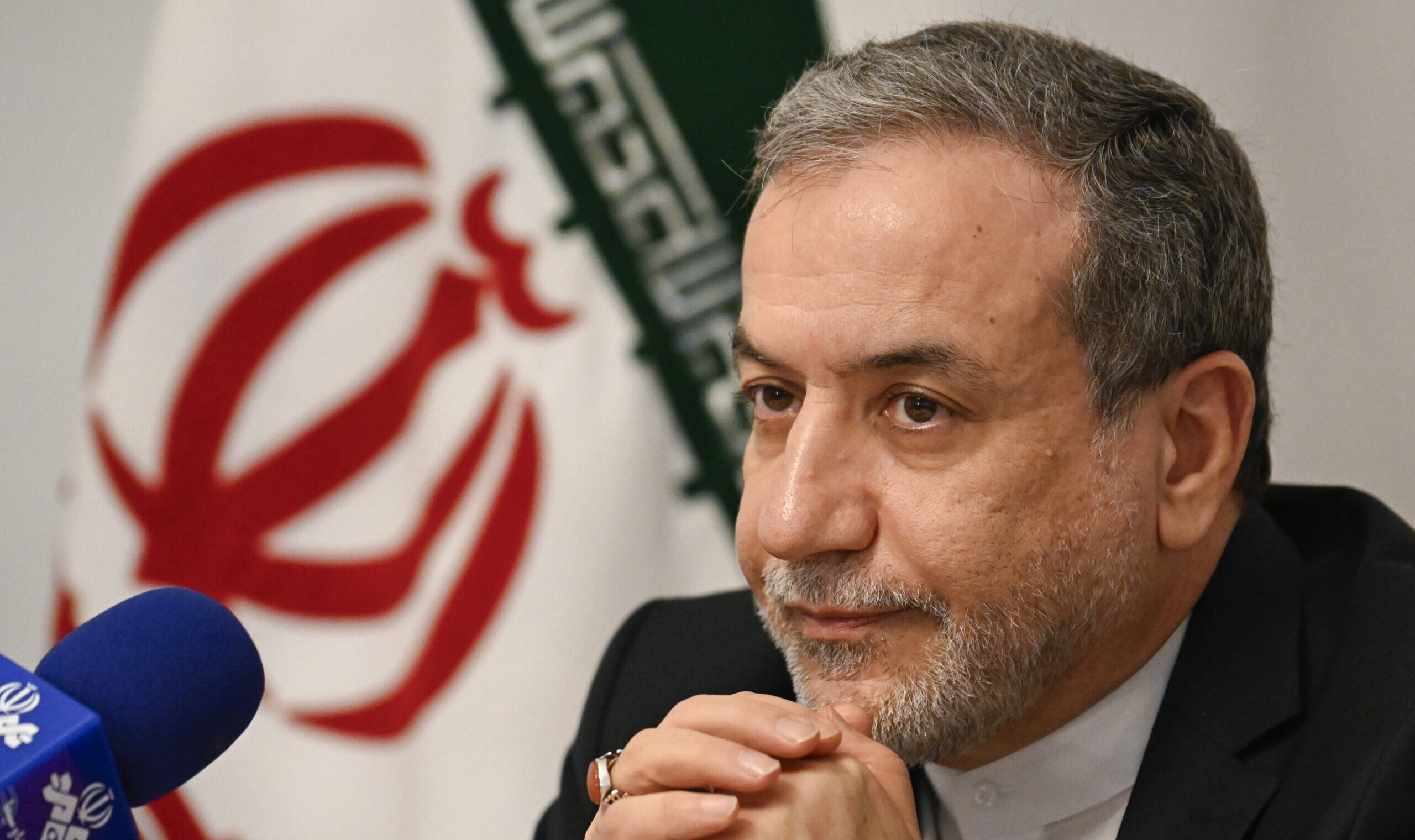
www.theamericanconservative.com
The Surprising Campaign of Zohran Mamdani
Politics
The Surprising Campaign of Zohran Mamdani
A 33-year-old Muslim socialist can’t win the NYC mayor’s race—right?
It wasn’t long ago now when the political comeback of the former New York Gov. Andrew Cuomo seemed all but assured. It was just this March, in fact. Cuomo held what appeared to be an insurmountable lead in a crowded Democratic primary field running to become the next mayor of New York City. In an Emerson College poll of likely voters taken between the 21st and 24th of that spring month, Cuomo garnered 38 percent of voters with New York State Rep. Zohran Mamdani and Mayor Eric Adams earning only 10 percent and 8 percent, respectively.
Despite repeated allegations against Cuomo’s character and leadership during his time in Albany, many voters in the state and its biggest city still revere the former governor. POLITICO called it the “Cuomo Paradox,” noting in May that the 67-year-old statesman is “unpopular, yet still leading the New York City mayor’s race.” After the sitting Mayor Eric Adams exited the Democratic primary competition in April, most analysts just assumed Cuomo would cakewalk to Gracie Mansion.
And so it seemed that nothing short of a Hail Mary could propel any of Cuomo’s challengers to within a puncher’s chance of slowing the former governor’s emphatic return to the New York political scene. Then, the 33-year-old Muslim socialist behind a series of sleek, street-smart TV ads promising to freeze the rent, provide no-cost childcare, and make public busing free catapulted in out of nowhere. As the Democratic establishment spends millions of dollars researching how to “connect with young men,” Mamdani has found it easy to connect with the sort of figures the establishment struggles to contain.
“My political journey begins with Bernie’s 2016 run, which gave me the language to describe myself as a Democrat socialist campaign,” Mamdani explained during an interview with the Majority Report in January. In one of his first acts as an assemblyman, Mamdani rallied with the New York Taxi Workers Alliance and was arrested for disorderly conduct during a sit-down protest in the middle of Broadway. Then began Mamdani’s hunger strike in front of City Hall.
For two weeks, the man who was born in Uganda and immigrated to New York City at the age of 7 joined NYTWA members who refused to eat as pressure mounted on then-Mayor Bill de Blasio. In the end, the taxi drivers, and Mamdani, won. “I could not shake the sense that I was witnessing the doomed last stand of yet another group of working-class New Yorkers who would be crushed by the hedge-fund Bretts who run this city,” Mamdani said of the successful protests.
And so that is who Mamdani is, politically: an activist, someone who has shown a willingness to fight in ways that his establishment peers simply cannot. When Border Czar Tom Homan taunted Gov. Kathy Hochul (D-NY) in Albany this March, Mamdani had to be held back by state troopers as he demanded to know if Homan “believed in the First Amendment.” That same fighting spirit was on display in the two most recent mayoral debates where Mamdani faced off against the field and its moderators who were all eager to know where the slick-talking son of a Bollywood filmmaker stood on the escalating situation in the Middle East.
When moderators asked the nine candidates where they would visit on their first foreign trip, every candidate except Mamdani promised to visit Israel. Without missing a beat, Mamdani answered simply: “I would stay in New York City, my plans are to address New Yorkers across the five boroughs and focus on that.” When pressed to elaborate, Mamdani promised to “stand up for Jewish New Yorkers” and said he believed that “Israel has a right to exist as a state with equal rights.”
Cuomo immediately went on the attack, noting that Mamdani won’t visit Israel and that the assemblyman refused to say Israel should exist “as a Jewish state.” The ongoing humanitarian crisis in Gaza and the sudden outbreak of war between Israel and Iran, which began less than two weeks following the debate in question, has no doubt muddied the waters of Mamdani’s ascension. Nearly 1 million Jews call New York City home, and they play an outsized role in the cultural, political, and financial realities of America’s great northern city. Carrying the primary ballot without appealing to this demographic on some level would appear to be an insurmountable obstacle.
In New York, Mamdani is known for his anti-Zionist sentiments. In 2021, he led “boycott, divestment and sanctions” protests during a pro-Palestinian rally across from the Israeli Consulate in Manhattan. He introduced a bill to ban funding for Israeli settlers and declined to support a New York Assembly resolution marking the founding of Israel. And in 2023, he introduced the “Not on our dime!” bill to target tax-exempt charities that provide money to Israeli settler organizations.
Which is why in May, Mamdani responded directly to rumors that he is an antisemite. In a one-minute video posted to Twitter, Mamdani clarified his legislative support for Holocaust remembrance during his time as a state assemblyman. “I have repeatedly supported allocating millions of dollars in the state budget for Holocaust survivors and my campaign has proposed the largest fiscal commitment of any candidate to combat antisemitism,” Mamdani stated. “As mayor, I will protect Jewish New Yorkers and build a city that every person is proud to call home.”
But it’s not just Jewish New Yorkers who are concerned about Mamdani’s views on the Middle East. Nearly 1 million Muslims call New York City home and not all of them are in agreement with Mamdani’s views on Israel, which some characterize as soft. Just last week, Mamdani was confronted in a West Village church over his statement that Israel “has a right to exist.” The protester accused Mamdani of pandering to Israel and questioned the sincerity of his Muslim faith. “To call into question how I consider myself Muslim is a step too far,” Mamdani responded.
On Wednesday, Mamdani reiterated that he is not an antisemite in an emotional speech in which the 33-year-old politician responded to the verbal attacks: “I get messages that say, ‘the only good Muslim, is a dead Muslim.’ I get threats on my life.” The speech came a day after an appearance on the Bulwark Podcast during which Mamdani declined to condemn the phrase “Globalize the Intifada.” Mamdani defined the word “intifada” as “struggle” and argued that the word “has been used by the Holocaust Museum when translating the Warsaw Ghetto Uprising into Arabic.” The U.S. Holocaust Museum in response denounced Mamdani on X Thursday morning. The situation is evidence of how Mamdani’s Muslim faith has been an integral and unpredictable element of his campaign, one that has forced him to repeatedly and loudly condemn what critics view as antisemitic tendencies.
According to the Council on American-Islamic Relations, roughly 350,000 of the nearly 1 million Muslims that live in New York City are registered to vote. Of those 350,000 people, only about 12 percent actively participate in elections. And of those 12 percent, Mamdani has struggled to convince the more socially conservative contingent who are prone to question his progressive social values.
“It’s really hard to convince people, because obviously Zohran is representing all New Yorkers,” said Ashraf Chowdhury, a volunteer for Mr. Mamdani’s campaign. “So some of the selling points have to be: We support all the Jewish people.” The lack of registered voters in the Muslim community and Mamdani’s progressive message leaves a sizable gap in representation at the ballot box, one Mamdani will have to make up through non-Jewish, non-Muslim white voters, the demographic with which the assemblyman polls best.
Mamdani’s recent surge in polling has upended the political class in New York. Though hard data is always difficult to find in the lead-up to any election, polling released by Data for Progress in early June found Mamdani only down two points on the final ranked-choice ballot. That same poll found Mamdani well ahead of Cuomo in the favorability category.
Mamdani’s attitude explains, as much as any single thing, how the youthful politician has found himself with a fighting chance against the aging and dated Cuomo. Mamdani’s appeal on the left is not unlike how President Donald Trump found bottle-rocket momentum in 2015 against a cast of Republican neocons who were brutally and sincerely out of touch with the voting public. Riding new momentum, Mamdani secured two of the most high-profile endorsements favored by any progressive running for office in America in the last month. With his polling numbers rising, both Sen. Bernie Sanders (I-VT) and Rep. Alexandria Ocasio-Cortez (D-NY) endorsed Zohran, with AOC going as far as to dance with Mamdani on a float during the Puerto Rican Day Parade in NYC.
Though Mamdani’s message of city-run grocery stores and no-cost childcare has played well among the progressive ranks who carry hard power in the New York electorate, moderates and conservatives have pointed to a checkered past that was even more liberal than the messages pitched by Mamdani today. During his time representing the 36th District of New York in June 2020, Mamdani called for the abolition of the capitalist system and the defunding of police.
His softer, more polished pitch in 2025 has failed to move the opinions of editorial boardrooms in the city. “The New York Times Leads the Movement to Stop Zohran Mamdani,” shouted a critical headline from the New Yorker published on Tuesday morning. “The newspapers don’t want New Yorkers to put Zohran Mamdani on their ballots,” argued City and State. And it’s true. The New York City newspapers really don’t want Mamdani to be the next mayor of their city.
The Queens Chronicle demanded “anyone but Mamdani.” The New York Post called Mamdani “a uniquely awful menace” who “would be a disaster for New York.” amNewYork highlighted Mamdani’s stances on the Holocaust and Israel, arguing that Mamdani is “unfit to lead.” In response to the barrage of dismissals, Mamdani stated that the editorials were “the opinions of only about a dozen New Yorkers. A democracy will be decided by close to a million New Yorkers.”
And while Mamdani is correct to assert that voters will have the final say, there is no doubt that the heavy-handed criticism levied against him by online critics and the city newspapers will likely play some small but not inconsequential role in how the winner of the Democratic primary field is selected on Tuesday, June 24. Worse for Mamdani, his meteoric rise may have plateaued: Prediction markets have swung back toward Cuomo as the dominant favorite in the last 72 hours. On Polymarket, Mamdani holds a 21 percent chance of winning next week’s election, a big jump from his five percent chance to win it in late May but a precipitous drop from his local high of 40 percent chance on June 12.
Even more worrying are the latest polls from Marist showing Cuomo cruising to victory. And new data from the Manhattan Institute finds Cuomo up 12 points in the final round of a hypothetical ranked-choice ballot. And while Zohran has worked recently to pivot the race toward a referendum on ICE deportations, the backdrop of war between Israel and Iran has dampened Mandani’s late surge, as renewed criticism of Mamdani’s statements on Israel and the pro-Palestine movement proliferates social media.
So can a 33-year-old Muslim immigrant who styles himself as a “democratic socialist” and refuses to outright condemn the intifada actually win the New York Democratic primary race next week? It appears unlikely. But has Mamdani shown himself to be a competitive figure in the broader arena? Certainly. His people-first politics and genuine showmanship are resonating sincerely with progressive voters who have, again and again, been misled and overpowered by establishment Democratic players. Where Mamdani lands after next Tuesday’s primary election is anyone’s best guess, but in my estimation, he’s likely to feature in the new Democratic Party for years to come.
The post The Surprising Campaign of Zohran Mamdani appeared first on The American Conservative.

 Rumble
Rumble















